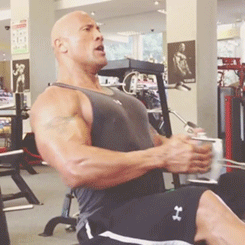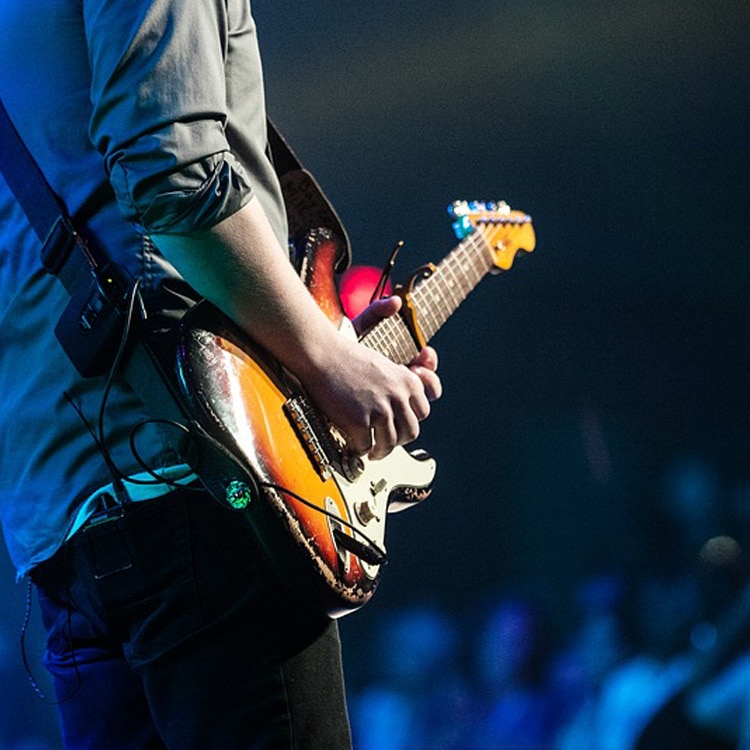Nerves are always going to be a big part of any musician’s life; you care about your craft so you care about doing it to the best of your ability! You may get sick of hearing it, but they’re a sign that your performance means something to you so you need to learn to live with them, especially if you find yourself struggling to hit the stage. Read on to find out how you can reduce tension allowing you to focus on your performance uninhibited.
Tension Types
Before we start its worth educating yourself on tension. Clarkson University’s Physical Therapy team posit that there are two types of tension, which are known as Functional (a positive focused tension good for refining complicated techniques) and Dysfunctional (a negative tension associated with performance anxiety, bad posture and unwanted muscle activity such as clenched teeth). Drama theorist Konstantin Stanislavski wrote that tension is an actor’s ‘occupational disease’. Arguably the same can be said of any performance discipline.
1. Visualise Success
Sometimes when you’re preparing for a performance your mind can become clouded by your inner critic. It may sound obvious, but its worth remembering that the audience is on your side; they’re not waiting for you to falter or expecting anything of you beyond the best performance you can give. Imagine beforehand that everything is going to go according to plan and try to put thoughts about yourself or the audience to the back of your mind in favour of the task at hand – your performance.

2. Centering
Founded by renowned sport psychologist Dr. Robert Nideffer, centering is the act of channeling your nerves positively and directing your focus in a stressful situation. Have a specific statement of intent in mind before you hit the stage using assertive and strong language to help visualise what you’re going to achieve. Deliberate diaphragmatic breathing will bypass stress response quick breathing and you can also scan your body for tension before taking the time to relax those pesky tense muscles. Choosing a focal point below eye level can help you retain focus.

3. Be Realistic
Self-assessment isn’t just for tax returns, you should remain realistic about your abilities and short term goals. There is nothing wrong with having room for improvement, isn’t that what life is all about as a performer? If you’re spending more time putting yourself down about not playing stadiums yet when you should be practicing and psyching yourself up for the next gig you’re likely to make yourself more nervous.

4. Look After Yourself
Eating and drinking sensibly before your performance is key to making sure you feel your best on the night. You don’t want to feel bloated, hungry or ill so make sure you eat a low-fat meal a couple of hours before show time and avoid caffeine or sugar.

5. Practice Makes Perfect
We appreciate its no good reading this ten minutes prior to your performance, but practice does make perfect. If you feel at ease with your performance in rehearsals your brain will feel like its got less to worry about on the night.

6. Get Some Sleep
It will come as no surprise to hear that good sleep helps with a performance. Failure to manage a decent length of uninterrupted sleep has been known to cause attention problems, disturbed moods, impaired mental performance and memory issues, none of which are ideal for a musician!
To help yourself arrive in destination land of nod only use the bedroom for bedroom activities (eg. not using mobiles and other devices or watching TV) and don’t nap during the day. If you haven’t fallen asleep within 30 minutes leave the room in favour of a quiet activity like listening to music or reading until you feel sleepy. If you still struggle to sleep don’t be tempted to clock watch as this will only add to your distress.

7. Stay Hydrated
We do bang on about this one a fair bit, but its so important. When your body is dehydrated your cells experience it at a molecular level communicating this to the subconscious as a subtle form of anxiety or survival threat. To avoid any further excuses for butterflies make sure you keep water on you at all times. As you’ve no doubt heard from us before, staying hydrated is also essential for keeping your voice performing at its full potential.

8. Upper Body Yoga
The upper body is the most problematic area for most musicians when it comes to tension. Without bending your neck backwards circle from having your ear on one shoulder to your chin resting on your chest and round to the other shoulder. Inhale as you touch your shoulder and exhale on return to your chest. You can change things up by reversing direction. Release tension in your shoulders by inhaling as you lift them towards your ears, holding at the top for a few seconds and exhaling as you relax them. You can then incorporate rolling your shoulders backwards.

9. Progressive Muscle Relaxation
The practice of Progressive Muscle Relaxation is based on the principle that tension is the body’s response to anxious thoughts. When you’re nervous you can have such a tense body that you forget what it felt like to be relaxed. The deliberate act of tensing and releasing muscles serves as a reminder. Once familiarity with the practice is built up it can be used to lower overall stress levels, improve quality of sleep and even reduce physiological problems like headaches and stomach aches.
To complete the exercise, you will need to set aside fifteen minutes and be seated somewhere quiet. Once you’ve decided on the first muscle you’re going to focus on squeeze it as firmly as you can and hold for five seconds. Avoid involving surrounding muscles then exhale whilst relaxing the muscle. Take the time to feel the difference between tense and relaxed muscles. Take a break of about fifteen seconds between each muscle tension. Once you know what you’re doing there’s no reason why you can’t do a condensed version of PMR immediately before you hit the stage.

10. Qigong
An ancient Chinese martial arts discipline, Qigong is the practice of combining movement, breathing, meditation and posture for a holistic approach to wellbeing. It has traditionally been associated with spirituality, health and martial arts training and is now widely used as a means of relaxation. Broadly speaking there are two types of Qigong: dynamic / active with a focus on slow flowing movement and meditative / passive which is static and focuses on breathing.
The benefits of Qigong include decreased tension in the body, the ability to block out distractions and a lowering of anxiety which should lead to greater stage confidence.

